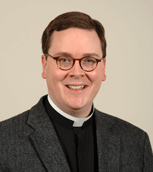On April 4, 1968, just hours before Martin Luther King Jr. was killed in Memphis, Tenn., Robert F. Kennedy’s presidential campaign made a stop in Muncie, Ind. He wanted to talk to the 9,000 students who had assembled in the gymnasium at Ball State University about the meaning of life. “What really is our purpose in life?” Kennedy asked them before recounting the suffering of children who were literally starving in Mississippi. “In the last analysis, the only excuse, really, for our existence must be that we are to perform some act, do something on behalf of those who are less well off…. And I think that you should take this on as a burden.”
Politicians did not usually talk like this. Most campaign stump speeches were (and still are) designed to appease voters and not challenge them, let alone demand that they take up a selfless cause. Yet the students connected with Kennedy. Perhaps it was his idealism, which seemed to mirror their own. But Kennedy’s ideals were not young, and they were certainly not the product of a fanciful naïveté.
It is a cliché among Robert Kennedy’s biographers that he changed dramatically after the assassination of his brother. Yet, like most clichés, there is some truth in it. Following that gruesome day in November 1963, Robert Kennedy became a man in touch with the world’s pains. In confronting them, he found inspiration and consolation in his Catholic faith. He was always the most devout child in his famously Catholic family; but in his mourning, his faith had taken on greater urgency and necessity. In the brief 85 days of his presidential campaign, Kennedy’s Catholicism and his politics converged, making him what Catholics today might call “a faithful citizen.”
Kennedy rarely spoke directly about his faith, but it was evident in his actions, including his opposition to the Vietnam War and the death penalty and in his hesitation to liberalize the nation’s abortion laws. It was obvious in his trip to Delano, Calif., where he attended a Mass with Cesar Chavez that ended the labor leader’s long fast for workers’ rights. Above all, it was present in speeches like the one at Ball State, in which he would begin with a plea for his audience to recognize the inherent dignity of the human person. Our suffering fellow citizens, he said, “are not statistics; they are human beings…each with a right to lead a life of dignity and purpose…men, women and children, condemned to suffer by our inaction.”
The dignity of the person, in Kennedy’s mind, was both America’s mandate for change and the governing principle of that change. He was a critic of Lyndon B. Johnson’s war on poverty, believing that it violated the principle of subsidiarity, the idea that the dignity of the individual requires that decisions be made by those most closely affected by them. Top-down government programs like Johnson’s could dehumanize people, Kennedy believed, and, more important, distance us psychologically from our personal moral responsibility for the suffering of others. “We can do this,” he told the students at Ball State, “not by delegating power to a bureaucracy, not by sending more money and passing new laws, but by challenging the concern of our individual citizens—you and me.”
His calls for radical change worried conservatives; his belief in private enterprise made liberals squirm. But Kennedy believed that the only way forward was to create a new political order built on a common moral imperative and practical reason. “There is…no separation between the deepest desires of heart and of mind and the rational application of human effort to human problems,” he told an audience in South Africa.
Robert Kennedy was undoubtedly a flawed man. Prior to 1963, much of his life was characterized by a relentless and sometimes ethically blind exercise of power politics. By the time of his death in June 1968, much of that had changed, but some of it had not. It is not clear how successfully Kennedy’s politics would have translated into governing or how he would have responded to some of the major challenges of the 1970s, like legalized abortion or the collapse of the post-war boom. He was, after all, a politician. Yet in the 40 years since his death, while other Catholic politicians have embraced the church’s concern for the poor and its consistent ethic of life, few have come as close as Robert Kennedy did in his last campaign to appreciating the truly radical nature of our Christian call in the modern world.








